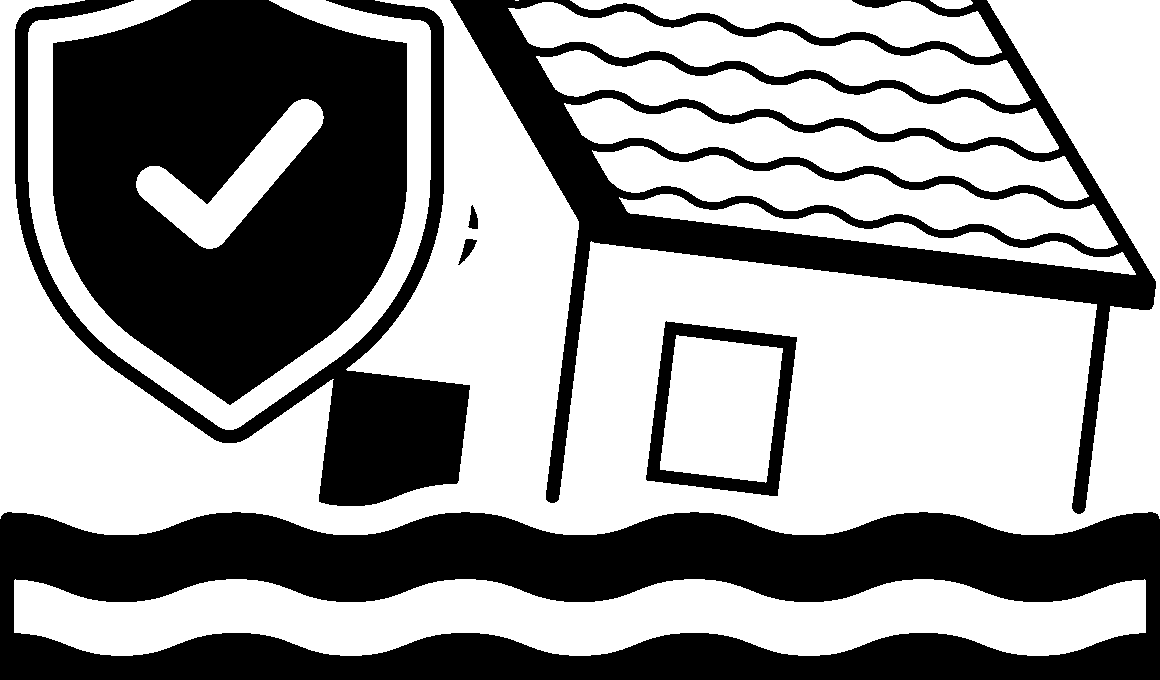How Natural Disaster Insurance Protects Your Small Business Assets
As a small business owner, protecting your assets is crucial, especially from unforeseen events like natural disasters. Natural disasters such as floods, earthquakes, and wildfires can profoundly affect your operations. Disaster insurance provides a safety net, mitigating financial losses resulting from property damage or business interruptions. Essential components of natural disaster insurance can include coverage for physical assets, emergency repairs, and debris removal. By securing the right insurance, you ensure that your company’s financial health remains intact after a disaster. The first step is assessing the unique risks your business faces based on its location and industry activities. For example, coastal businesses might prioritize flood coverage. Additionally, understanding what is covered under your policy versus what is excluded is vital. It could mean the difference between full recovery and financial struggle. Furthermore, maintaining proper documentation and inventory can streamline the claim process, facilitating faster recoveries. Ultimately, by investing in natural disaster insurance, you are safeguarding your business’s future and preserving the investments you have made. Take the time to evaluate your options and choose a policy that aligns with your specific needs.
In addition to conventional property damage, natural disaster insurance can cover lost income during forced business closures. When disaster strikes, many businesses experience a decline in operations or must temporarily shut down. This may lead to substantial financial losses. Business Interruption Insurance, often part of a natural disaster policy, compensates for the income you would have earned had the disaster not occurred. It’s important to understand how this aspect functions because it can make a significant difference in your financial stability during turmoil. Often, policies will have a waiting period before the coverage kicks in, so preparation is essential. Evaluating factors such as the duration of the interruption coverage is crucial to ensuring that you can survive financially during the recovery period. Furthermore, consulting an insurance expert can help sift through complex insurance jargon and pinpoint the best coverage available for your specific situation. Be diligent in comparing multiple insurance providers and their offerings when shopping for natural disaster coverage. Proper due diligence in selecting your policy can provide you with peace of mind, knowing that your hard work won’t go to waste due to uncontrollable events.
Natural disaster insurance isn’t just a line-item expense; it’s a strategic investment in your business’s resilience. Small businesses often operate on tight budgets and may hesitate to spend on insurance. However, the cost of being underinsured can be far greater in the event of a natural disaster. Calculating potential disasters and weighing them against insurance premiums can highlight how beneficial this security truly is. Engaging in risk assessment can also reveal other vulnerabilities that may need coverage. Collaborating with risk management professionals or insurance brokers may yield recommendations tailored for your specific business sector. They assess your operational activities, location risks, and even local laws and regulations to find the insurance that fits just right. Furthermore, some businesses can benefit from government programs that help mitigate disaster-related risks, further easing your financial burden in case of emergencies. The aim is to create a strategic approach to protecting your assets, ensuring your ability to navigate turbulence effectively. Highlighting the costs of potential outages against the financial obligation of premiums can clarify your position regarding coverage so you can proceed with caution.
Types of Natural Disaster Insurance
There are various types of natural disaster insurance available, each tailored to specific risks and scenarios. Flood insurance is a significant form of coverage that can protect your business premises from water damage, particularly if your location is prone to flooding. Earthquake insurance, albeit not traditionally included in standard property policies, may provide critical financial support if seismic activity affects your region. Wildfire coverage benefits small business owners in areas at risk, enabling them to recuperate losses from fire damage or even smoke-related damages. Storm and windstorm insurance can further shield against damage caused by hurricanes and severe storms, protecting both your physical infrastructure and inventory stock. Another notable policy is equipment breakdown insurance, which takes effect if your essential machinery fails due to a covered peril. Tailored policies can also combine these coverages, creating a more comprehensive plan based on your specific needs. Always opt for coverage that reflects the unique risks associated with your business operations while factoring in your location’s vulnerabilities. A robust insurance strategy requires continual evaluation and adjustment to remain effective.
When selecting an insurance provider, pay attention to their reputation, claims process, and customer service. It is vital to read reviews and ask fellow business owners for recommendations. A provider that doesn’t provide excellent service can lead to complications when you need them most. Additionally, ensure that you understand the claims process ahead of time, including required documentation and timelines. A cumbersome claims process can sap your energy, diverting focus away from recovering your business. Investigate if the insurance firm has representatives or branches in your area. This can facilitate quicker responses and claims handling. Moreover, checking if they offer assistance during emergencies can significantly contribute to a smoother recovery experience. Look for recommendations of insurers specializing in small businesses, as they often understand unique needs better than larger firms. Moreover, establish a rapport with your agent or insurance broker. Open communication will allow you to ask questions and clarify doubts as emergencies arise. In this way, you equip yourself and your business to navigate recovery more effectively. Ultimately, thorough research ensures you pick the best coverage available for your business’s resilience.
The Financial Impact of Disasters
The financial impact of disasters on small businesses can be devastating, often leading to permanent closure. The Federal Emergency Management Agency (FEMA) states that up to 40% of businesses never reopen following a disaster. Such statistics highlight the financial risks associated with lacking adequate insurance. Not only can physical damages occur, but the interrupted revenue streams often create an even larger problem. With natural disaster insurance, small business owners can protect against both property damage and lost income, significantly increasing their chance of survival. Recovery often involves meticulous planning, and having a financial buffer can ease the overwhelming process. Additionally, how prepared and informed you are regarding your business’s finances can promote resilience. Creating bridges between your revenue, expenses, and insurance coverage is critical. With a concrete understanding of your rebuilding costs and timelines, you can manage your cash flow more effectively. Moreover, obtaining a financial adviser can help establish sound recovery plans, ensuring that all factors influencing your business’s future prosperity are considered. By identifying potential vulnerabilities and creating a robust safety net, you empower yourself against disaster-associated risks.
In conclusion, investing in natural disaster insurance is not merely an option for small businesses; it is a necessity. The unpredictability of natural disasters demands that every business owner, especially those managing small enterprises, evaluate their needs for adequate coverage. Identifying risks unique to your area and sector plays an essential role in this evaluation. A sound insurance policy can turn potential loss into recovery, allowing your business to pick up the pieces and rebuild efficiently. It’s crucial to understand the various types of insurance available, along with their individual benefits and costs. Each offers a different layer of protection, contributing to a holistic safety net. Regularly reviewing your insurance policy and adapting it as your business evolves ensures that you are always safeguarded against threats. Furthermore, keep communication lines open with your insurance agents to address your changing needs promptly. Being proactive in these aspects not only minimizes risks but also reinforces your confidence in navigating uncertainties. By giving thoughtfulness to your insurance requirements, you are laying the groundwork for a resilient future, fortifying your business against natural disasters.
Small business owners must understand and appreciate how vital coverage is when protecting their assets. Many perceive insurance as a burdensome cost, neglecting the peace of mind it offers. Investing in natural disaster insurance not only promotes survival in crises but also reassures stakeholders of your commitment to sustainability and recovery. As these challenges arise, you are equipped to adjust and pivot your business practices, leading to a more resilient operation overall. Furthermore, investing in planning measures like creating an emergency response strategy can enhance your preparedness. Engage your employees in these discussions to cultivate a resilient company culture. Allowing them to contribute and understand their roles during emergencies can build team cohesion and promote a proactive attitude. Incorporating regular training and drills ensures the entire team is familiar with emergency protocols. Taking these steps empowers your business to face challenging situations head-on while fostering a sense of community among your employees. In essence, being well-prepared and adequately insured not only protects your physical assets but strengthens the entire fabric of your small business.


